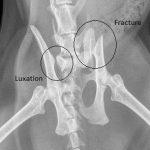Correspondence course for pet owners
This course covers a wide range of topics including the behaviour of popular companion animals, effective contact, handling and care, and how to organise a petsitter's work. The entire course consists of three subject blocks and lasts three months. Once a month, participants receive course materials via snail mail. On the basis of the knowledge contained in the materials and practical tasks they write credit works, which are the basis for passing individual blocks. After passing all the works, the participants receive a certificate of completion with the scope of knowledge obtained, which can be a good recommendation for people who hire a pet sitter.. Graduates of the course obtain a special status of a certified pet sitter on the PETSITTER website and are searched for in the first place by the PETSITTER search engine.en.
The course consultant is Dr Peter Neville, a prominent British behaviourist and close associate of the late John Fisher.
The course is designed for people who are at least 16 years old.
Course content includes:
Block I Caring for your dog.
1. Basic knowledge of dog behavior. 2. The needs of the dog. 3. What motivates a dog to have contact with humans. 4. Rules for making contact with a strange dog. 5. How the dog learns? What a petsitter can teach your dog? 6. Caring for dogs with problem behaviours – aggression, anxiety. 7. Caring for a puppy. Specific needs of puppies. Socialisation. 8. Walking the dog. 9. Care in the pet owner's home. 10. Care in the caregiver's home. 11. Difficult situations – escape, conflict with another dog. 12. Care during illness, administering medication.
Block II Care of the cat. Caring for other animals.
Caring for a cat 1. Basic knowledge of cat behaviour. 2. Territoriality – organization of cat's territory, types of territory meaning. 3. Rules for establishing contact with a cat. 4. Playing, grooming and feeding. 5. The most common behavior problems in cats and how to deal with them. 6. Caring for a cat in the owner's home. 7. Caring for the cat in the caregiver's home. 8. What to do in case of an escape 9. Care during illness, administration of medication. Caring for other animals 1. Birds (feeding, catching, administering medication, recognizing signs of stress or malaise) 2. Rodents – rabbits, rats, guinea pigs, others (feeding, catching, administering medication, recognizing signs of stress or distress) 3. Ferrets (feeding, catching, administering medication, recognizing signs of stress or distress) 4. Reptiles (feeding, catching, administering medicine, recognizing signals of stress or bad mood)
Block III First Aid in Emergencies. Principles and organization of a petsitter's work.
Emergency first aid A. Dog. 1. Traffic accidents. 2. Injuries. 3. Poisoning. 4. Burns. 5. Heat Stroke 6. Frostbite and hypothermia. 7. Cardiac arrest. 8. Bites and stings. 9. Emergency procedures. B. Cat. 1. Traffic accidents. 2. Injuries. 3. Poisoning. 4. Burns. 5. Heat stroke. 6. Cardiac arrest. 7. Bites and stings. 8. Emergency procedures. Rules and organization of the petsitter's work 1. First contact with a pet owner. 2. Responsibility towards the owner of the animal. Legal issues. Local regulations. 3. Personal accident insurance.
Duration of course: 3 months
Start Date: 10 and 20 of each month. First edition April 20, 2007
Cost of participation: PLN 490 – promotional price for those who sign up for the course by 20 april 390zł
Organizer:
AmiChien – Behavior Therapy for Companion Animals
Amichien is a training institution – registered as a training institution no. 2.12/00038/2007. As a result, registered unemployed people can apply for public funding for training provided by AmiChien – more.
The Provincial Labour Office in Kraków hereby certifies that on February 28, 2007, the training institution AmiChien Andrzej Kłosiński, with its registered office in Kraków, 2/1U Konecznego Street, was entered in the register of training institutions under the number 2.12/00038/2007.
In accordance with article 20 of the Law of 20 April 2004. On the basis of the Act on employment promotion and labour market institutions, a training institution offering training for the unemployed and job seekers may obtain an order financed by public funds to conduct training after obtaining an entry in the register of training institutions kept by the Voivodship Labour Office competent for the seat of the training institution.
In this regard, registered unemployed persons can apply for public funding for training provided by AmiChien.
An unemployed person can apply for a training grant from the labour office where he/she is registered.
The main aim of labour offices is to help unemployed people and job seekers to find a job and employers to find suitable employees. The Labour Offices also carry out tasks in the field of mitigating the effects of unemployment, employment and professional activation of job seekers.
Training:
Helping unemployed people and those at risk of losing their jobs to obtain qualifications adapted to the needs of the labour market.
These training courses include:
- apprenticeship,
- retraining (career change),
- increase in professional qualifications,
- learning the skills to seek and obtain employment.
Any person registered in the labour office who meets at least one of the following conditions may be referred for training:
1. has no professional qualifications,
2. has qualifications inadequate to meet the needs of the labor market,
3. lost ability to perform work in current occupation,
4. Is during a period of job termination for reasons related to the workplace,
5. is a person dismissed from professional military service as a result of restructuring and is not entitled to receive full pension benefits,
6. is employed in a plant that has been declared bankrupt (is in liquidation),
7. receives the social benefits that miners are entitled to,
8. receives a guaranteed periodic benefit from social assistance,
9. has been granted a training allowance by the Social Insurance Institution.









